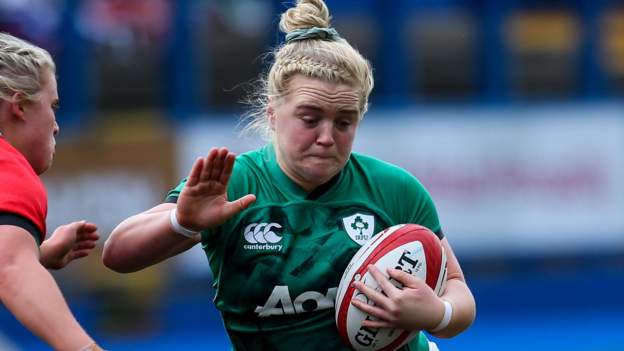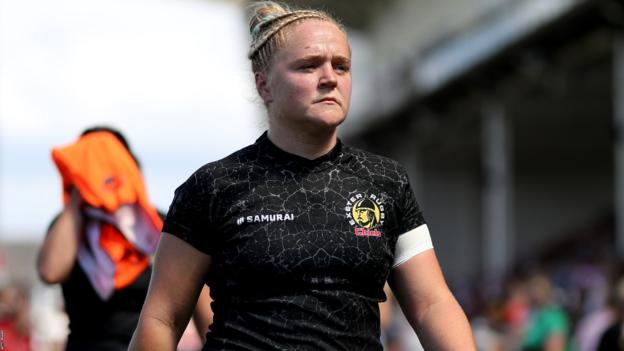
Cliodhna Moloney says she no longer dwells on the disappointment of her Ireland exile “for my own sanity”.
Moloney has not represented her country since 2021, despite playing at an elite level in England with Exeter Chiefs.
While encouraged by Ireland coach Scott Bemand’s suggestion she may be recalled during the Women’s Six Nations Moloney is at peace with whatever happens next.
She believes more needs to be done to provide young girls in Ireland with a proper pathway into the sport.
Ireland, who were Grand Slam winners in 2013, finished bottom of last year’s Six Nations table. They begin this year’s tournament away to France on Saturday.
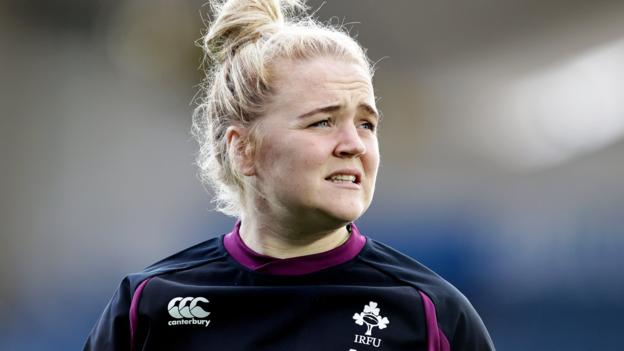
The low point for the women’s game came in 2021 in the wake of their failure to qualify for the 2022 Rugby World Cup.
Players were unhappy at the suggestion from the IRFU’s then women’s director of rugby Anthony Eddy that their XVs programme had not been overlooked by the IRFU.
Moloney described those remarks on social media as “slurry spreading”.
She was also one of a large number of players who wrote a letter to an Irish government minister to say they had “lost all trust and confidence in the IRFU and its leadership” of the game.
Moloney, now 30, has not been involved at international level since.
“Obviously at the start there was a lot of disappointment for me, because the whole thing was going on,” she said.
“There is no denying a lot of stuff happened two and a half, three years ago.
“And in the preceding four or five years ago that I was involved as well, there was a lot of issues with Irish rugby. I don’t think anyone could deny that.
“But it’s a long time to hold on to that feeling of ‘Will I, won’t I, be going back?’
“I was acutely aware of what the risks were, I’m a big girl and not going to cry about it.
“It’s unfortunate that’s the way things worked out but for your own sanity you have to park that a little bit and concentrate on playing rugby again.”
Asked if she felt she still had a lot to offer at international level, Moloney replied: “You always believe you’re the best person for the job, I think that is just the nature of being a high-performance athlete.”
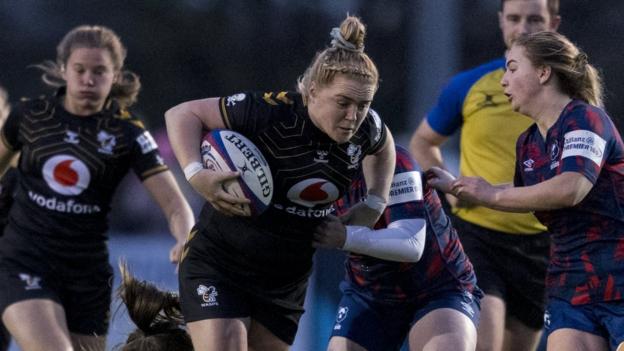
Despite her international exile, Moloney has remained a much sought-after club player and moved from Wasps to Exeter Chiefs in the summer of 2022.
Making the move with her were her now fiancee and England international Claudia MacDonald and new Ireland co-captain Edel McMahon – who are also her house-mates in Devon.
“It was a great decision for me as a rugby player, to get some joy out of the rugby again and have none of the background stuff, just turn up and train and play and enjoy time with my team-mates,” added Moloney.
“That’s what I have tried to do in Exeter, it is one of the best places in the world to play rugby and this is obviously the best league.
“It is a high-performance programme at Exeter and a lovely place to live; a seaside city and quite small like Galway.
“I have probably let go of the focus of worrying will I get back in (with Ireland). You can’t be dragging that around for two or three years.”
Moloney is saddened that women’s rugby in Ireland has stagnated since the highs of the 2013 Grand Slam and 2014 World Cup semi-final appearance.
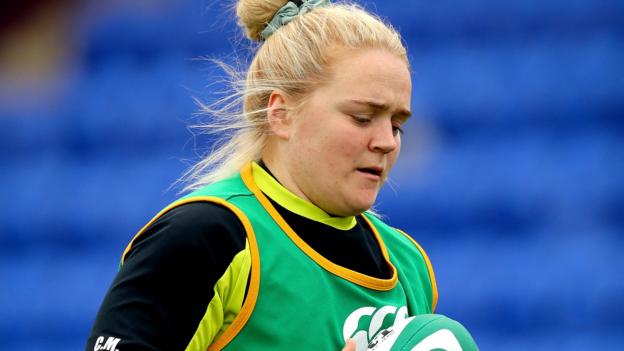
“The game doesn’t have a good reputation in Ireland right now, and that’s been the case for five or six years,” Moloney admitted.
“Women’s rugby hasn’t been painted in the best light, or portrayed as an up-and-coming sport with lots of funding and resources.
“There are other avenues for girls to play sport at a high level, if that is their aspiration.
“People like me who traditionally were Gaelic footballers who moved into rugby as a new challenge and something to excel at in a high-performance environment, those people might now be looking at the AFL and soccer. And you can’t really blame them.
“I think because Ireland is such a rural, community place, if the club game isn’t thriving you will not have that influx of players.
“I know rugby in a lot of places is an elitist private school thing, but it can’t be like that in Ireland for women’s rugby.
“It can’t grow to where it is in England and France unless it becomes a community sport like GAA.
“That’s going to take a lot of buy-in, to make it an accessible sport for young girls everywhere.”


